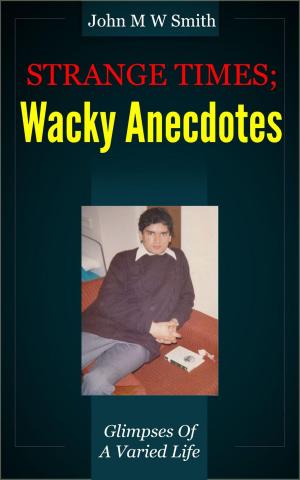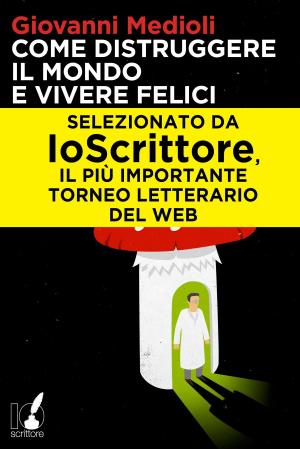| Author: | Rene Descartes | ISBN: | 1230001404012 |
| Publisher: | Difference Solutions | Publication: | October 29, 2016 |
| Imprint: | Language: | English |
| Author: | Rene Descartes |
| ISBN: | 1230001404012 |
| Publisher: | Difference Solutions |
| Publication: | October 29, 2016 |
| Imprint: | |
| Language: | English |
"Discourse on Method for Conducting One's Reason Well and for Searching for Truth in the Sciences" (1637) Descartes suggests that perfect knowledge can be achieved by means of perfect, individual reasoning. According to Descartes, reason can only guarantee its truth-seeking value in the personal sphere, and even then only when it is gradually and systematically applied. Descartes demonstrates his own method for generating perfectly reasoned knowledge, but it is the model of this behavior and not the knowledge itself that ought benefit his readers. The text is in this sense a testament to Descartes' own progress as a practitioner of his own method. Descartes exerts himself as the ultimate critic whose default stance is one of doubt and who wishes to reform his own thought according to the most rigorous standards of reason possible. He does not succeed in following most of his maxims. Nevertheless, his experiment is a notable instance of the struggle for individual enlightenment. First, Descartes addresses the harms of the status quo organization of knowledge and its acquisition. He identifies the vector by which falsehoods propagate themselves undetected among the disciplines of human knowledge. The current realm of human knowledge is the product of "design by committee" in the sense that it is cumulative and collaborative, meaning that previous errors in reasoning may serve as the ostensibly firm foundations for the current order of knowledge. He alleges that no discipline of knowledge can be said to be entirely reasoned from empirical data. He criticizes even the apparently objective systems of mathematics and logic for a deficiency of application. Descartes points to controversies and inconsistencies between disciplines as evidence of imperfection among the sciences, for if they were perfectly conceived, they would be a single and uniform science. In theory, these unstable foundations could be reformed at the individual level with individual reason alone. To this end, Descartes performs his own experiment, isolating himself from the order of human knowledge to the best of his ability. He recommends that the individual reasoner enter a knowledge vacuum that is void of the mental constructs with which other humans think. Like Bacon, Descartes wishes to distance himself from the logic of syllogism and abandon the "Idols of the Theater." Starting from a single absolutely true concept, if one can reason it out, one might gradually construct knowledge by the sole mechanism of pure reasoning, resulting in trustworthy and verified blocks of knowledge which have been thought out by the individual reasoner and which ideally have empirical evidence in the world. Descartes performs this role to demonstrate the solvency of the method to himself. His first building block is perhaps the first warning signal with regard to the rest of his project, but it is also one of the only reasoning sessions to which the readers have detailed access. Descartes falls short even at this primary stage because he is unable to achieve a point zero of knowledge from which to start. Beyond this, it is evident from Descartes own writing that his "good sense" frequently makes reasoned but unreasonable leaps. Indeed, readers may only ponder the interim years in which Descartes moved from his starting point of "I think therefore I am" to his much more specific "knowledge" concerning the heart. Descartes' task of operating solely by means of individual reason is both impossible and inadvisable. Furthermore, his project is a performative contradiction: the notion of individual reason opposes the adoption of collectively achieved knowledge, yet the text serves the very purpose of intruding upon the reader's individual sphere of reason. But, for all of this project's weaknesses in practice, Descartes' project shifts the responsibility and procedure of enlightenment away from the elite class of thinkers into the domain of the autonomous reasoner.
"Discourse on Method for Conducting One's Reason Well and for Searching for Truth in the Sciences" (1637) Descartes suggests that perfect knowledge can be achieved by means of perfect, individual reasoning. According to Descartes, reason can only guarantee its truth-seeking value in the personal sphere, and even then only when it is gradually and systematically applied. Descartes demonstrates his own method for generating perfectly reasoned knowledge, but it is the model of this behavior and not the knowledge itself that ought benefit his readers. The text is in this sense a testament to Descartes' own progress as a practitioner of his own method. Descartes exerts himself as the ultimate critic whose default stance is one of doubt and who wishes to reform his own thought according to the most rigorous standards of reason possible. He does not succeed in following most of his maxims. Nevertheless, his experiment is a notable instance of the struggle for individual enlightenment. First, Descartes addresses the harms of the status quo organization of knowledge and its acquisition. He identifies the vector by which falsehoods propagate themselves undetected among the disciplines of human knowledge. The current realm of human knowledge is the product of "design by committee" in the sense that it is cumulative and collaborative, meaning that previous errors in reasoning may serve as the ostensibly firm foundations for the current order of knowledge. He alleges that no discipline of knowledge can be said to be entirely reasoned from empirical data. He criticizes even the apparently objective systems of mathematics and logic for a deficiency of application. Descartes points to controversies and inconsistencies between disciplines as evidence of imperfection among the sciences, for if they were perfectly conceived, they would be a single and uniform science. In theory, these unstable foundations could be reformed at the individual level with individual reason alone. To this end, Descartes performs his own experiment, isolating himself from the order of human knowledge to the best of his ability. He recommends that the individual reasoner enter a knowledge vacuum that is void of the mental constructs with which other humans think. Like Bacon, Descartes wishes to distance himself from the logic of syllogism and abandon the "Idols of the Theater." Starting from a single absolutely true concept, if one can reason it out, one might gradually construct knowledge by the sole mechanism of pure reasoning, resulting in trustworthy and verified blocks of knowledge which have been thought out by the individual reasoner and which ideally have empirical evidence in the world. Descartes performs this role to demonstrate the solvency of the method to himself. His first building block is perhaps the first warning signal with regard to the rest of his project, but it is also one of the only reasoning sessions to which the readers have detailed access. Descartes falls short even at this primary stage because he is unable to achieve a point zero of knowledge from which to start. Beyond this, it is evident from Descartes own writing that his "good sense" frequently makes reasoned but unreasonable leaps. Indeed, readers may only ponder the interim years in which Descartes moved from his starting point of "I think therefore I am" to his much more specific "knowledge" concerning the heart. Descartes' task of operating solely by means of individual reason is both impossible and inadvisable. Furthermore, his project is a performative contradiction: the notion of individual reason opposes the adoption of collectively achieved knowledge, yet the text serves the very purpose of intruding upon the reader's individual sphere of reason. But, for all of this project's weaknesses in practice, Descartes' project shifts the responsibility and procedure of enlightenment away from the elite class of thinkers into the domain of the autonomous reasoner.















